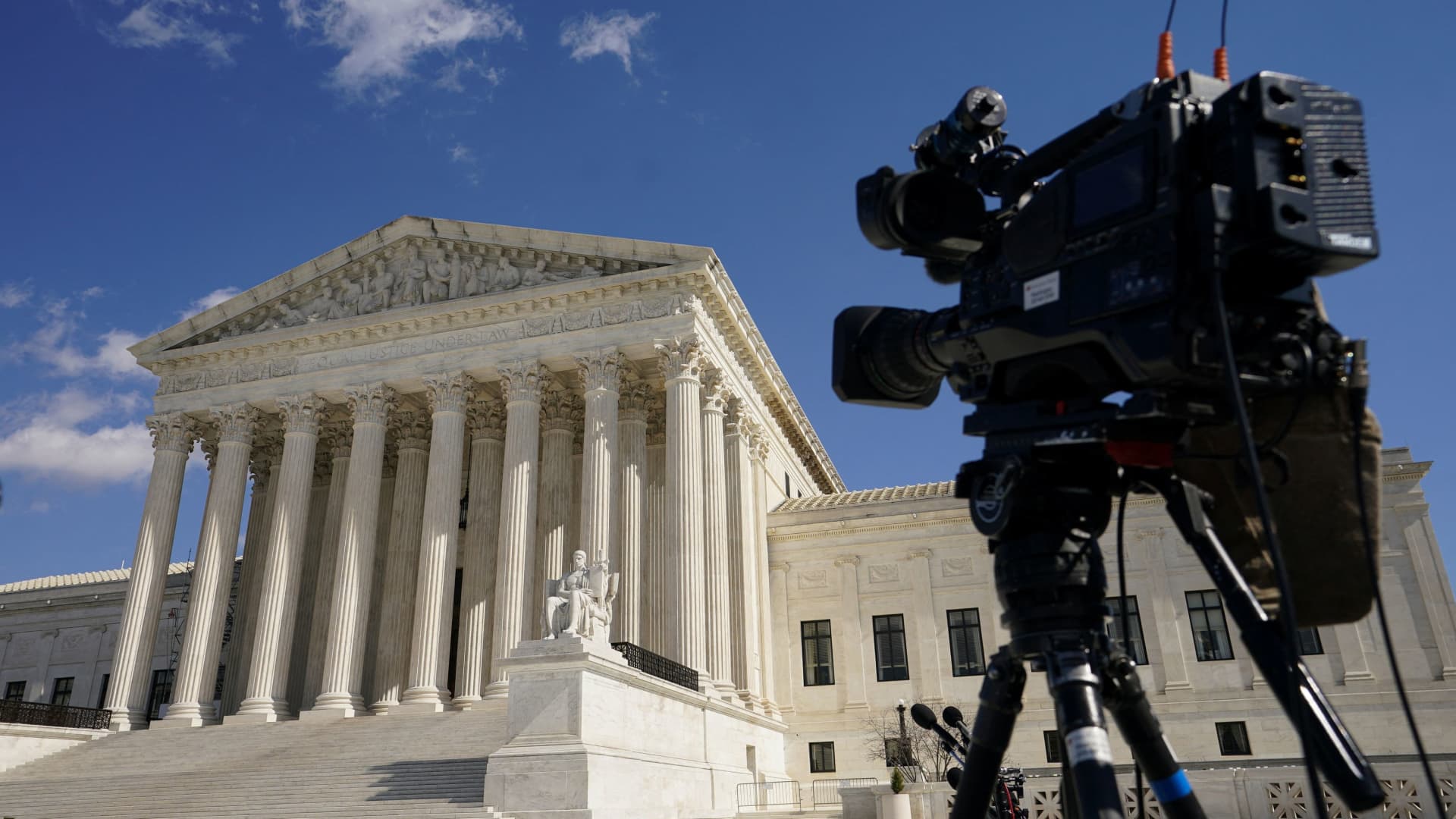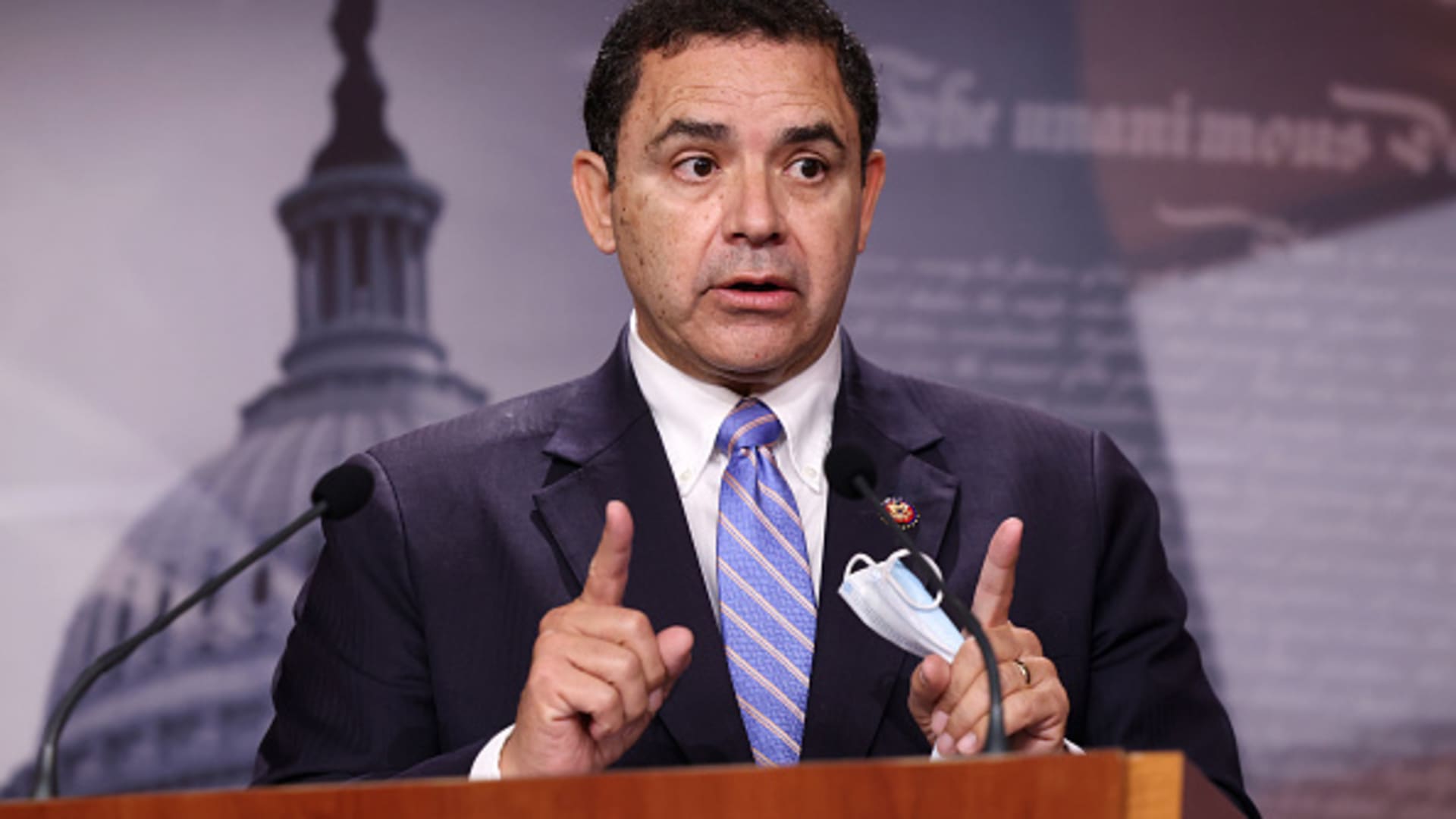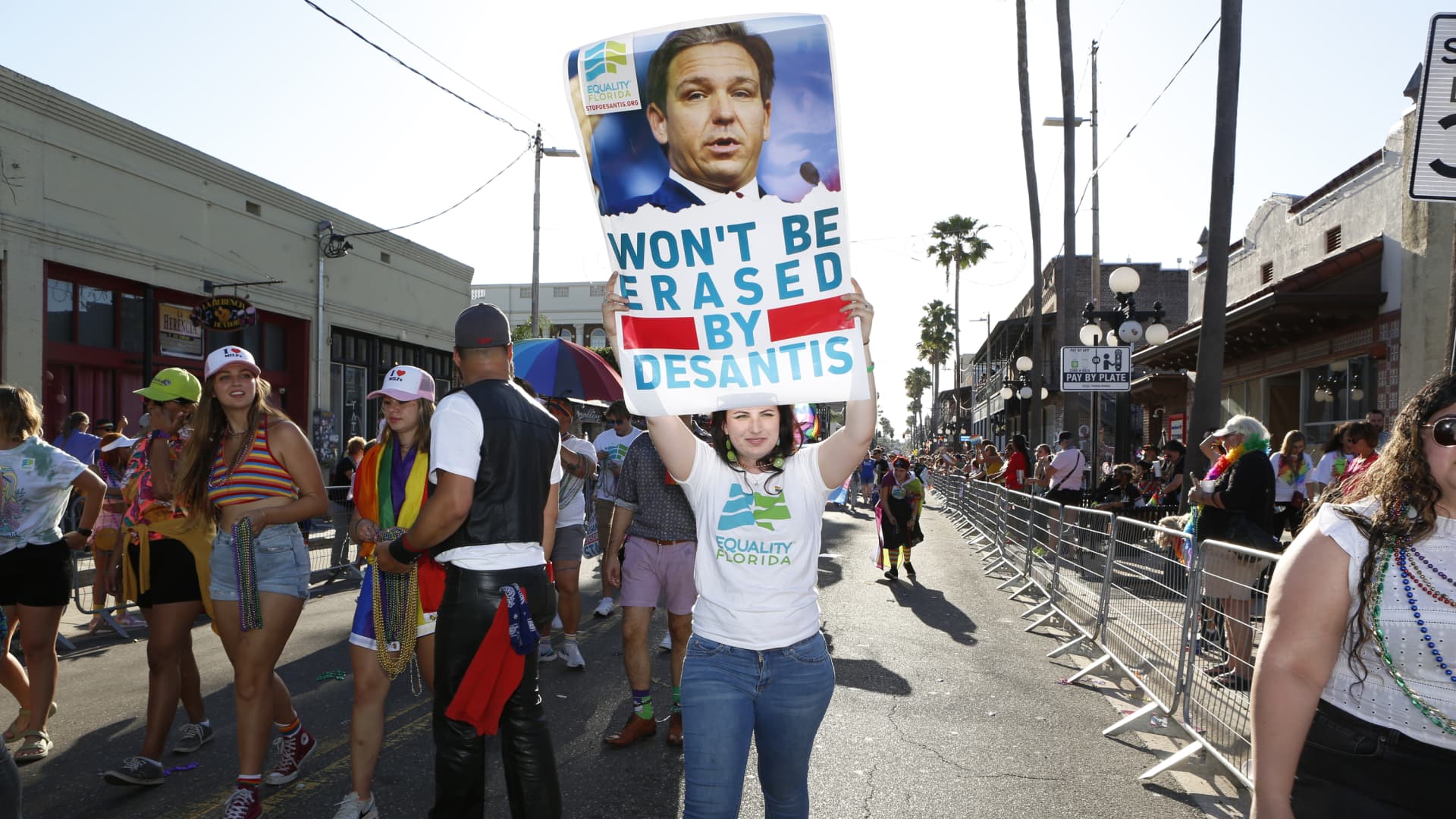Atheists avoid — for now — Supreme Court review of lawsuit on Florida shooting prayer vigil
The city of Ocala, Florida, had asked the Supreme Court to consider whether a group of atheists had the legal standing to file suit under the Constitution.

A TV camera points to the U.S. Supreme Court as justices inside heard arguments in Gonzalez v. Google at the court in Washington, February 21, 2023
Kevin Lamarque | Reuters
The Supreme Court handed a group of atheists a win Monday when it declined to take a case, Ocala v. Rojas, seeking to block their lawsuit over a 2014 prayer vigil arranged by the city of Ocala, Florida, after drive-by shootings that injured several children.
But the victory might be relatively short-lived.
The decision clears the way for a federal judge to rule on whether a 2018 decision that found Ocala violated the U.S. Constitution's First Amendment in arranging the vigil should be tossed out. In an unrelated case, the Supreme Court ruled in June in favor of a public high school football coach who prayed after games, which attorneys say indicates a potential win for Ocala.
In the Florida case, the Ocala police chief organized and promoted a prayer vigil whose attendees included police chaplains.
Several atheists attended the event and later sued on the grounds they were offended by its alleged violation of the Establishment Clause of the Constitution, which prohibits governments from establishing or favoring a particular religion.
The atheists, represented by the American Humanist Association, won on those grounds in 2018 when a federal judge ruled that the event violated that clause.
The judge, in his ruling, applied the so-called "Lemon test," named after a 1971 Supreme Court ruling.
That test required government action to have a secular purpose, that the government not be entangled with religion, and that a public program not have its primary effect to advance or inhibit a religion.
The judge awarded nominal damages of $1 per plaintiff, in addition to attorneys' fees and other costs.
In July 2022, the U.S. Court of Appeals for the 11th Circuit upheld the atheists' legal standing to sue the city.
But the court in the same ruling sent the case back to the district court, ordering a judge to reconsider the ruling in the atheists' favor in light of the Supreme Court's ruling in favor of the Washington state high school football coach who prayed after games, known as Kennedy v. Bremerton School District.
In that 6-3 ruling, the Supreme Court effectively jettisoned the Lemon test in deciding that the coach had the right to pray with players and others on the field after games. The court's ruling said the Establishment Clause "must be interpreted by 'reference to historical practices and understandings.'"
"A natural reading of the First Amendment suggests that the Clauses have 'complementary' purposes, not warring ones where one Clause is always sure to prevail over the others," Justice Neil Gorsuch wrote in the majority opinion in Kennedy.
The 11th Circuit's order makes it possible that, under the new standard set by the Supreme Court, the atheists in the Ocala suit are at risk of having their victory in the district court overturned.
The city of Ocala asked the Supreme Court to rule that "psychic or emotional offense allegedly caused by observation of religious messages" was not a sufficient injury to give the atheists legal standing to sue, particularly given the fact that they voluntarily attended the event.
A majority of the Supreme Court's justices on Monday declined to take the case on those grounds, without commenting on the decision.
But Gorsuch, who agreed with the decision not to take the case, at least for now, in a statement Monday made clear that he disagreed with lower court rulings that found that the atheists had a right to sue on the grounds that they are an "offended observer."
That concept grants legal standing to plaintiffs in Establishment Clause suits who can show they were offended by a violation of the clause.
Gorsuch called that offended observer concept a "fiction."
He wrote that he expects lower courts will recognize that the concept is no longer valid given the ruling in Kennedy v. Bremerton.
Justice Clarence Thomas, in the only noted dissent Monday, wrote that the Supreme Court should have taken the appeal by Ocala to make clear to lower courts whether the offended observer concept remained valid.
"I have serious doubts about the legitimacy of the 'offended observer' theory of standing," Thomas wrote. "Under Article III [of the Constitution], federal courts are authorized 'to adjudge the legal rights of litigants in actual controversies,' not hurt feelings."

 KickT
KickT 































